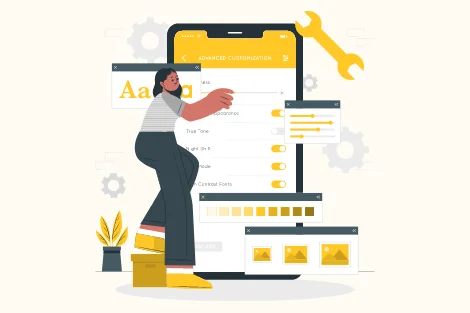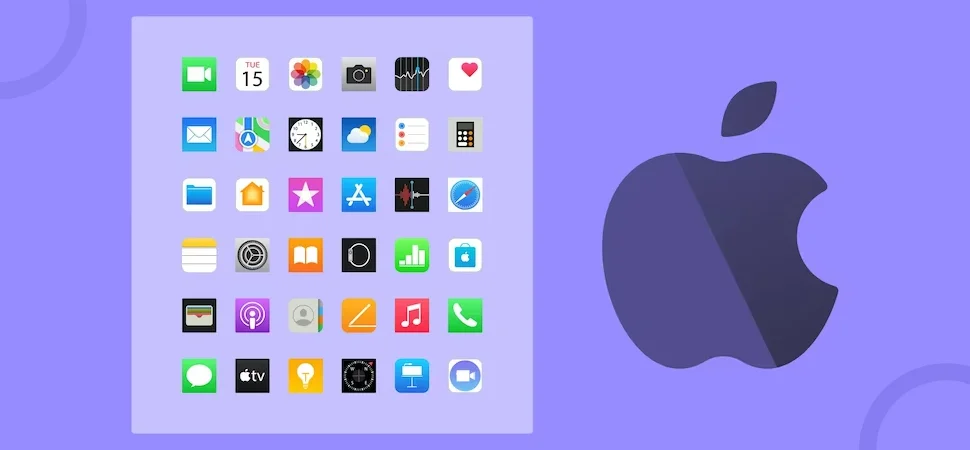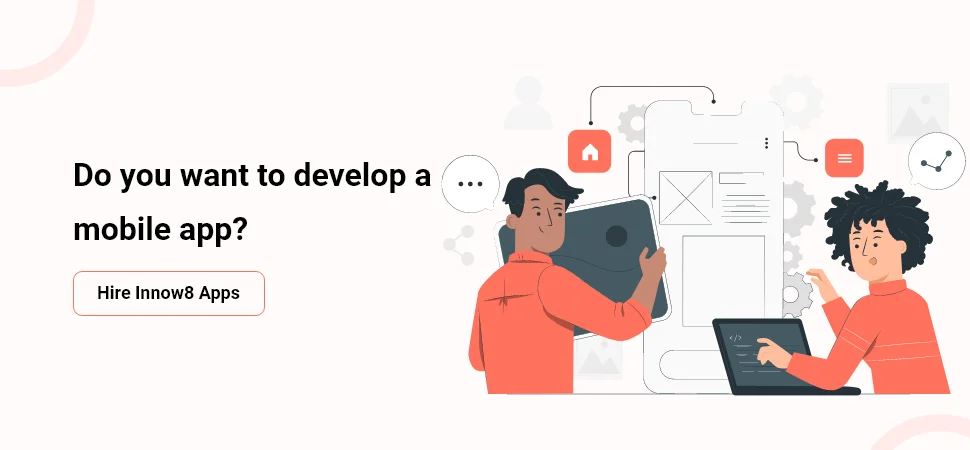Mobile application development- what's the difference between iOS and Android?

Introduction
Have you ever wondered why some apps work differently on different phones? It's because of iOS and Android. They're like the superheroes that power our phones and tablets. Today, we're going to take a fun journey into the world of making apps and understand why iOS and Android are like two sides of the same coin.
Think of iOS as the smooth operator - it's like the fancy, high-end restaurant where everything looks sleek and polished. Android, on the other hand, is like your favorite buffet - it's all about choices and making things just the way you like them. They both have their own special powers, and developers use them to create the apps we love.
So, let's put on our detective hats and explore what makes iOS and Android so cool! Get ready to uncover the secrets that make them work their magic in our digital world.
What is Android mobile application development?
Android mobile application development is the process of creating software applications specifically designed to run on devices that operate on the Android operating system. Android is an open-source platform developed by Google, and it is widely used in smartphones, tablets, smart TVs, and other devices.
Developers use programming languages like Java, Kotlin, and XML to build Android applications. These applications can range from simple utilities and games to complex business and productivity tools.
Android development involves designing the user interface, implementing functionalities, and ensuring compatibility with various Android devices. Once developed, these applications can be distributed through platforms like Google Play Store for users to download and install on their Android devices.
Pros of Android app development
Global Market Reach
Android holds the largest market share in the mobile operating system market globally, with a user base spanning across diverse demographics and regions. This widespread adoption means that an Android app has the potential to reach a vast audience.
Open-Source Platform
Android is an open-source platform, providing developers with a high degree of flexibility and customization options. This enables them to create innovative and unique applications tailored to specific user needs.
Diverse Ecosystem
Android supports a wide range of devices, including smartphones, tablets, smart TVs, wearables, and even IoT devices. This diversity allows developers to target various form factors and create applications for a multitude of use cases.
Cost-Efficient Development
Developing for Android is generally considered more cost-effective than other platforms. The Android SDK is freely available, and developers can use a variety of programming languages like Java, Kotlin, and even C++ to build applications.
Google Integration
Android seamlessly integrates with Google services such as Gmail, Google Maps, YouTube, and others. This allows for easy access to a wide range of APIs and services, enabling developers to leverage Google's extensive ecosystem.
Easy Market Entry
The Google Play Store, Android's official app distribution platform, offers a relatively straightforward process for submitting and publishing apps. This means developers can get their applications to the market faster.
Rich Feature Set
Android provides access to a wide array of features and APIs, allowing developers to create applications with advanced functionalities. This includes features like NFC, multitasking, and extensive notification options.
Customizability
Android offers a high degree of customization both in terms of user interface design and system-level modifications. This allows developers to create highly tailored and unique user experiences.
Integration with Third-Party Libraries
Android has a thriving developer community, which has led to the creation of a vast repository of third-party libraries and frameworks. These resources can significantly speed up the development process and enhance app capabilities.
Instant App Feature
Android Instant Apps allow users to run applications without the need for installation. This feature provides a seamless and immediate user experience, potentially increasing user engagement.
What is iOS mobile application development?

iOS mobile application development refers to the process of creating software applications specifically designed to run on devices powered by Apple's iOS operating system. iOS is the operating system that runs on devices such as iPhones, iPads, and iPod Touch.
Developers use programming languages like Swift or Objective-C, along with various development tools provided by Apple, to create iOS applications. These applications can range from games and entertainment apps to productivity tools, social networking platforms, and more.
iOS development involves designing the user interface, implementing functionalities, and ensuring compatibility with different iOS devices. Once developed, these applications can be distributed through Apple's App Store, where users can download and install them on their iOS devices.
Pros of iOS app development
Uniform User Experience
iOS devices, including iPhones, iPads, and iPods, share a consistent and standardized user interface. This uniformity ensures that apps run smoothly across all iOS devices, providing a seamless and intuitive user experience.
Robust Security Measures
Apple places a strong emphasis on user privacy and security. iOS apps go through a rigorous app review process before they are allowed on the App Store. This helps protect users from malicious software and ensures a safe app environment.
High Monetization Potential
iOS users tend to be more willing to spend on apps and in-app purchases compared to users on other platforms. This means that, on average, iOS apps may have a higher revenue-generating potential.
Loyal and Engaged User Base
Apple users often exhibit a high level of brand loyalty, and they tend to be early adopters of new technologies. This engaged user base can lead to quicker adoption of new apps and features.
Optimized for Performance
iOS is a closed ecosystem, allowing Apple to tightly integrate hardware and software. This results in a smoother and more optimized performance, providing users with a fast and responsive experience.
Less Fragmentation
Unlike Android, which runs on a wide range of devices from different manufacturers, iOS is limited to Apple's own devices. This reduces the fragmentation in hardware and software, making it easier for developers to create and optimize apps for iOS.
Easier Development Process
Apple's development tools, including Xcode and the Swift programming language, are known for their user-friendliness and efficiency. This can lead to faster development cycles and quicker time-to-market for iOS apps.
Strong Developer Support
Apple provides a wealth of resources for developers, including extensive documentation, tutorials, and a large and active developer community. This support ecosystem can be invaluable for developers seeking assistance or guidance.
Quality App Store Curation
The Apple App Store is known for its high-quality app selection. Apps on the App Store are carefully curated and reviewed, ensuring a level of quality and trust for users.
Access to Latest Technologies
Apple often introduces cutting-edge technologies and features in their devices and operating systems. Developers working on iOS apps have the opportunity to leverage these innovations to create unique and advanced functionalities.
Also Read: How Much Does It Cost To Develop An App?
Difference between iOS and Android Development
| Feature | iOS Mobile Development | Android Mobile Development |
|---|---|---|
| Operating System | Proprietary ( Developed by Apple ) | Open Source (Based on Linux Kernel) |
| Device Ecosystem | Limited to Apple devices | Diverse range of manufacturers and devices |
| Programming Languages | Swift, Objective-C | Java, Kotlin, C++ |
| Development Tools | Xcode, Interface Builder | Android Studio, IntelliJ IDEA |
| User Interface | Unified design across devices | Varies based on manufacturer and UI skin |
| App Distribution | App Store (Strict review process) | Google Play Store (More lenient review process) |
| Fragmentation | Minimal due to limited device models | Significant due to various manufacturers and models |
| App Revenue | Potentially higher due to user spending habits | Broader user base, but may spend less on average |
| Development Complexity | Easier due to standardized hardware and software | Can be more complex due to device fragmentation |
| Security | High level of security and privacy features | Security may vary based on the manufacturer and user behaviour |
| Monetization Potential | Users tend to spend more on apps and in-app purchases | Larger user base, potential for higher ad revenue |
| Market Share | Smaller market share, but higher user engagement | Larger market share, wider user base |
| Developer Community | Strong support and resources from Apple | Large and active developer community |
| Developer Community | Strong support and resources from Apple | Large and active developer community |
| Integration with Services | Deep integration with Apple services | Integration with Google services |
| Cross-Platform Development | Limited support for cross-platform development | Extensive support with tools like Flutter, React Native |
| Timely Updates | Timely iOS updates across all supported devices | Android updates may be delayed due to manufacturer and carrier involvement |
| Geographic Availability | Available worldwide, with services tailored to different regions | Global availability with services tailored to different regions |
Hire Innow8 Apps For Your Mobile App Development Project
Looking to bring your mobile app vision to life? Innow8 Apps is your dedicated partner for top-notch mobile app development. With a proven track record of successful projects, our team of seasoned experts specializes in crafting innovative, user-centric applications tailored to your unique needs.
Whether you're targeting iOS or Android, we employ cutting-edge technology and a user-centric design approach to ensure your app stands out in today's competitive market. With Innow8 Apps, you can expect timely delivery without compromising on quality.

Wrapping Up
We've taken a journey through the exciting worlds of iOS and Android development, discovering what makes each one special. Whether you prefer the sleekness of iOS or the endless options of Android, every step you take in this digital adventure brings you closer to leaving your mark in the mobile universe. So, let your imagination run wild, create apps that bring joy and inspiration, and make the world a little more amazing.
FAQs

How do I choose between iOS and Android for app development?
The choice depends on factors like your target audience, budget, and app complexity. If you want to reach a global audience and have a potentially higher revenue per user, consider developing for both platforms. If you have limited resources, consider starting with one platform and expanding later.
How much does it cost to develop a mobile app?
The cost of app development varies based on factors like complexity, features, platform, and location of the development team. Simple apps may cost from ten thousand dollars, while more complex apps can range from twenty-five thousand dollars.
What is your app development process?
Our app development process typically involves ideation and planning, designing the user interface, developing the app's functionalities, testing, and finally, launching the app on app stores. After that, providing ongoing support.
How can I monetize my mobile app?
There are various ways to monetize an app, including in-app purchases, subscription models, advertising, selling merchandise, and offering premium versions with additional features.
Take the first step towards innovation and success
Recent Blogs:
10 Steps to Hire an App Developer in 2024 | T...
Explore full step by step guide to know how to hire an app developer in 2024. What are the c...
Read More
Cost to Create a Trading App Like Robinhood |...
Learn about the cost of developing a trading app similar to Robinhood. Explore factors influ...
Read More
Sports Betting App Like Ladbrokes – Cost Brea...
Discover the estimated cost to build a sports betting app like Ladbrokes with key features a...
Read More